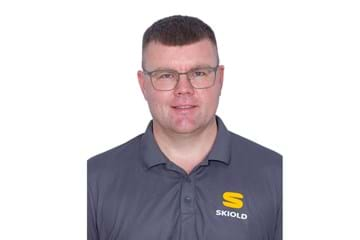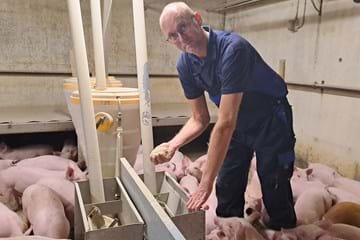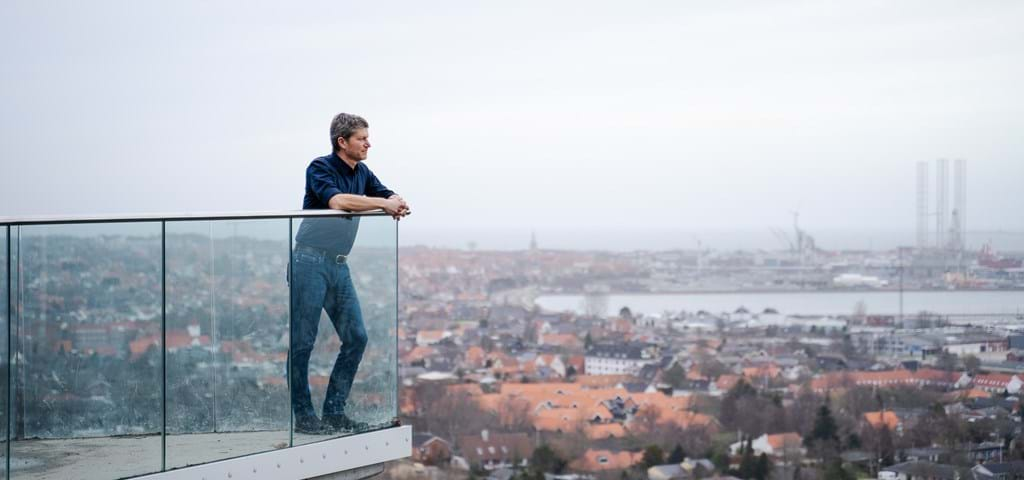
The man of ideas who found his calling
For many, youth is associated with a time when we are still searching for answers to which path in life to take
This was also the case with Per Wermelin in his young adult life, and not because the story about him is about finding one's own identity. But for Per, who today is R&D Software Manager at SKIOLD, the journey of life has a special pattern that is central to his story.
The entrepreneur who found peace
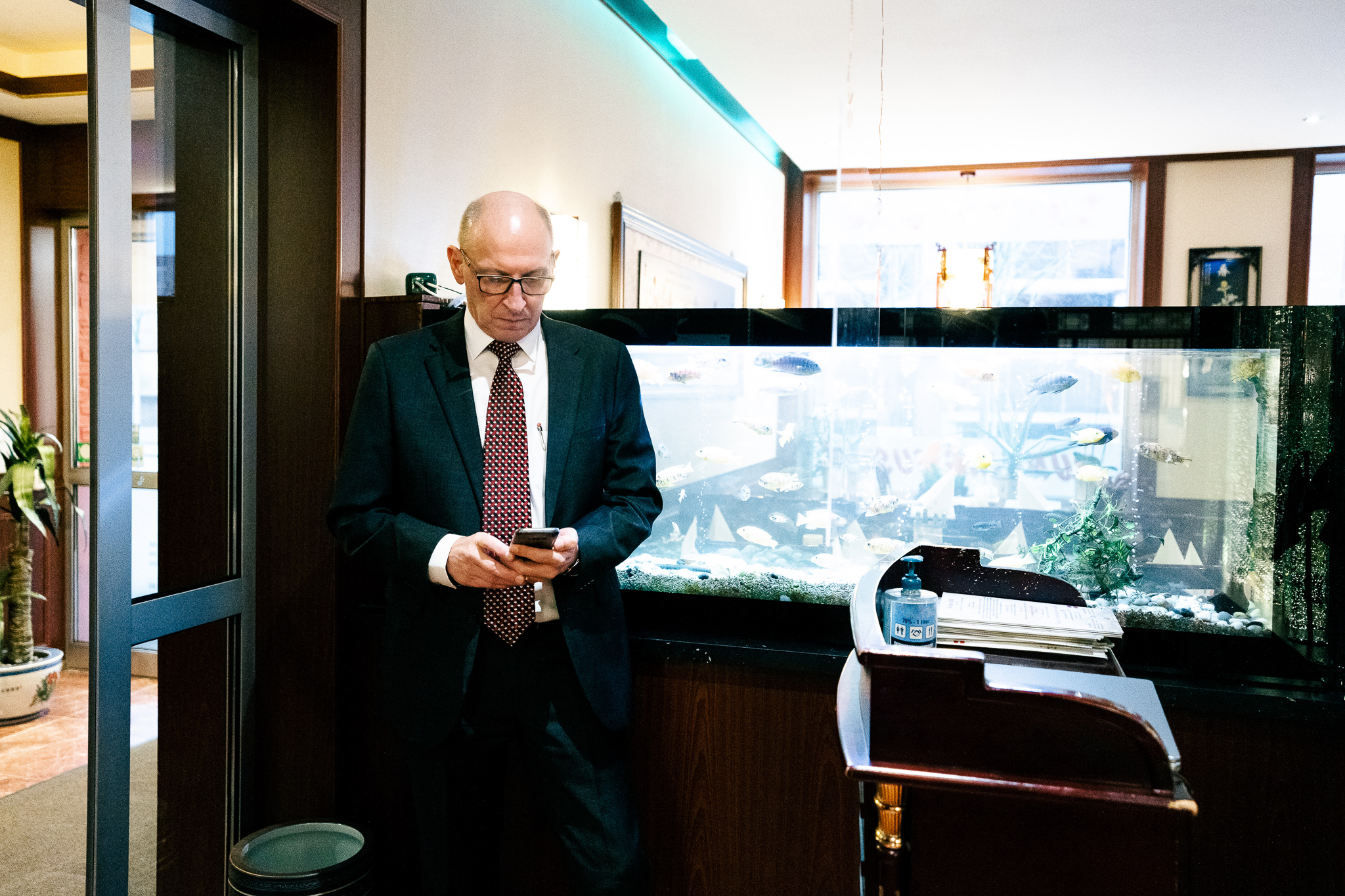

In his early twenties, Per works as bartender on a cruise ship, and here he meets a woman from Denmark, with whom he falls in love.
The two of them get together and decide to start a life in Sweden. But it is also a time where Per puts his energy into starting up independent businesses. He opens night clubs, restaurants and a commercial radio station. The drive is great, and the ideas are many.
It was a hectic life that took up many of his waking hours. He was on all the time. The lifestyle was tough and the tasks many. But one day he received a message, which changed everything: Per was going to be a father.
- I was tired of hanging out with drunk people, and when I got the message that I was now going to become the father of a little boy, it quickly became clear to me that it was time for something new. It was not the family life I wanted, with a small newborn child, Per says.
Therefore, they had to make a change, and the couple agreed that the time had come to move to the wife's home country, Denmark.
So, a 28-year-old Per and his wife moved to northern Denmark to the small town of Sæby. That the choice fell precisely on this small town was in many ways also about finding peace and presence for the small new family.
- Sæby is a beautiful city, and my wife's family had moved there, so in that way it made sense. But after living here for some time, I realized that the way people treated each other was something that also appealed to me. The polite and relaxed approach to each other, I liked that, Per says.
Join the IT wave
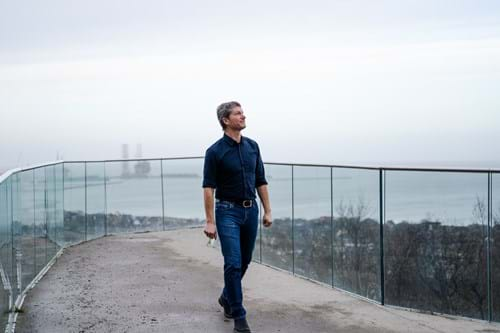
The 80s and 90s were a breakthrough for the entire IT wave. A time that helped challenge the previously more entrenched notion of people's career choices.
The generation was called Y and Z. A generation, where the creative industry in particular grew very much as a result of digitalization, and that was exactly what aroused Per Wermelin’s interest.
- I was involved right from the start back in the 90s. The development was steep, and for me it became almost a hobby to get acquainted with the many new currents, Per Wermelin says and continues.
- It started when I was in school, with my, at that time, new IBM PC with connected terminal. But when the whole internet wave broke, with the expansion of the web and html codes, it was clearly a call for me to take action.
The curiosity about IT and the digital development also became Per’s entrance into SKIOLD in the electrical department. The company was lacking skilled forces to execute and develop the many new opportunities brought about by the digitalization.
Per was hired and given the responsibility for configuring controllers for the SKIOLD product FlexMix.
"Can't we do better?"
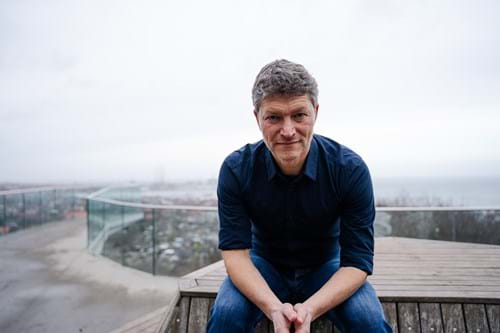
Owing to the fact that Per Wermelin worked with management systems, he also had a connection to SKIOLD's development department, which was the department responsible for all development work of new and existing systems.
However, Per had a bit of a hard time coping with that labour division. The many ideas queued up and the enterprising IT specialist often came up with suggestions on how to optimize the systems.
- I think that the development manager in those days may have become a bit tired of me constantly coming up with suggestions for new optimizations. I often came and asked, "can’t we do better?". And one day I was offered the overall responsibility for the development of everything within the field of controllers, Per Wermelin says.
Per switched from his role in the electrical department to a position in the development department, where he was now to be R&D Software Manager. The time had come for the many ideas to be put into practice. Now Per Wermelin had to pave the way for modern technological controls for feed production and grain handling.
He quickly took on the task and went out to the customers to set up the systems for the various facilities. Here, Per also learned about some of the needs that the farmers met in real life. Needs that brought about even more great ideas.
- I experienced what went well and what went less well. It taught me a lot to see how someone not used to navigating in the digital universe worked with our systems, Per Wermelin says.
Per brought the technical adaptations and the newly acquired knowledge back to the desk at SKIOLD, and began to add new features to the existing solution.
Digitalization is art
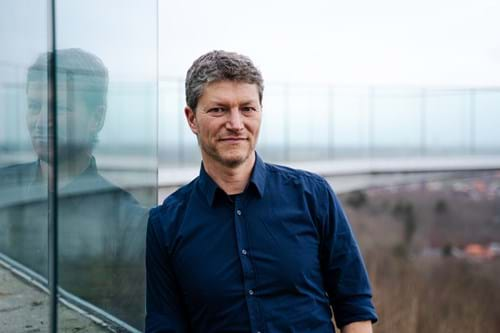
Personally, Per still has many ideas for SKIOLD's continued journey within the work with digitalization. To him, it is a must that the overall integrations that SKIOLD delivers can also inter-communicate. An end-to-end process that takes a system or service from start to finish and delivers a complete functional solution.
Processes are often handled as sub-processes around a single process, which has less focus on interfaces and contexts. This makes it difficult - if not impossible - to get the overall overview and to streamline and support all processes. Therefore, Per Wermelin's goal is clear.
- Digitalization is an art that is about getting people to use it and understand it. This only happens if you know the connections in the processes from which you retrieve data, Per explains.
He highlights several examples of types of functions that over time have been integrated into many of the systems that characterize SKIOLD's solutions to this day. Here he has been far-sighted, for it is an ever-growing demand from many farmers to have a more visible and transparent control of their processes.
- When you are with the customers and see many different manual processes, you see many functions that are not optimal or that can be optimized. That is the reality to which we must adopt. The reality that our customers face in everyday life, Per Wermelin says and continues.
- It is the development process that drives me. The development based on customers constantly making us aware of their challenges for which we then develop solutions. Being able to connect customers' production to smarter and simpler operating solutions that make their work easier is therefore the eternal mission that I am on.
Per Wermelin emphasizes that all the knowledge that SKIOLD has built up by establishing projects around the world has resulted in very practical know-how. It is on this basis that he develops the digital infrastructure of the future from harvest to animals.


 English
English
 Danish
Danish
 French
French
 Swedish
Swedish
 Vietnamese
Vietnamese
 Spanish
Spanish
 German
German
 English
English





